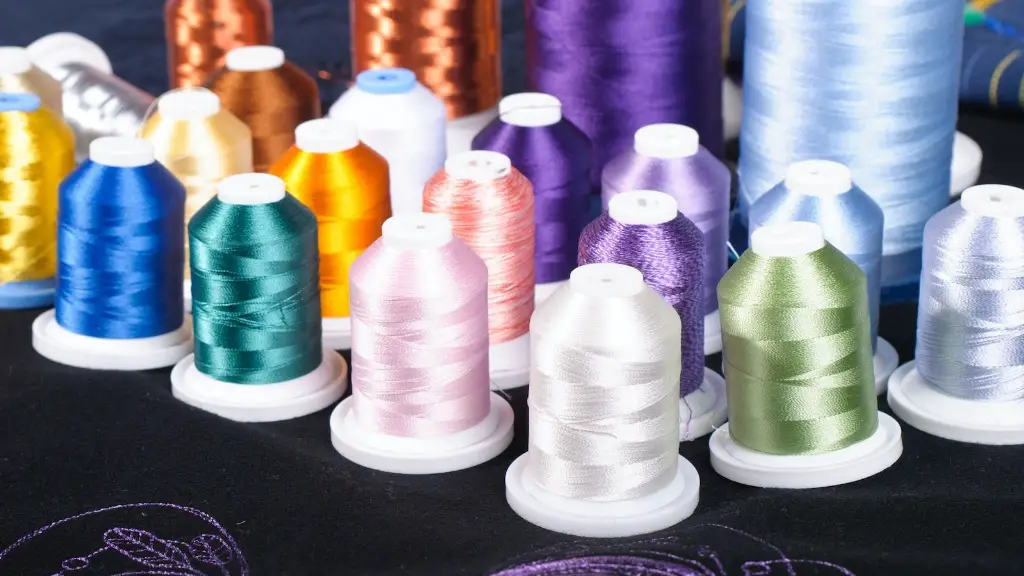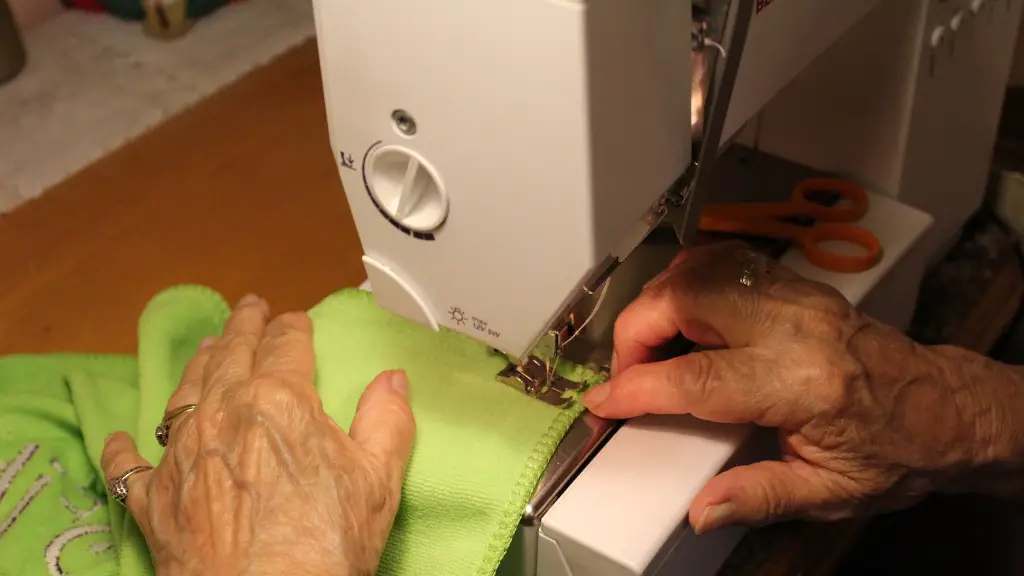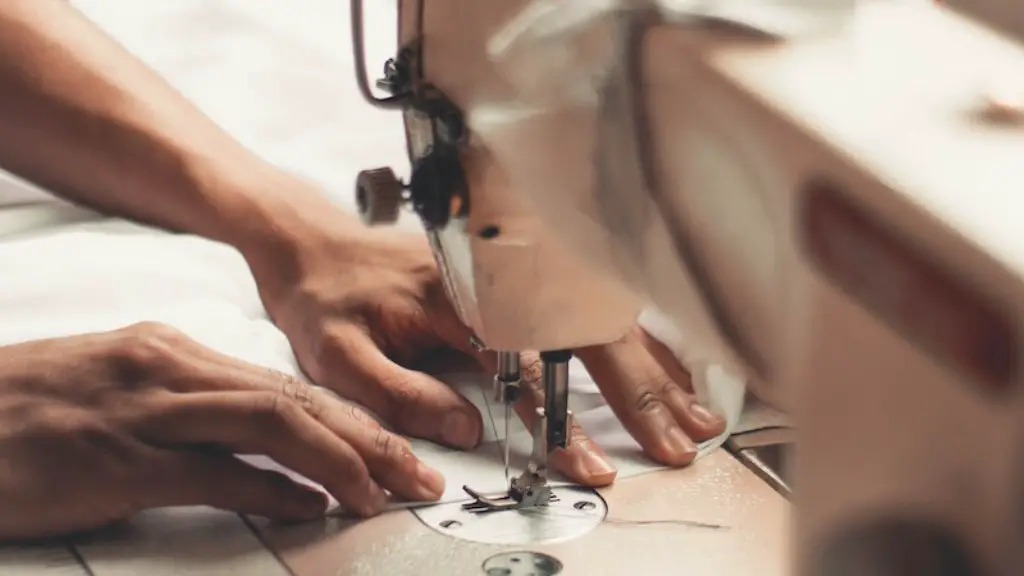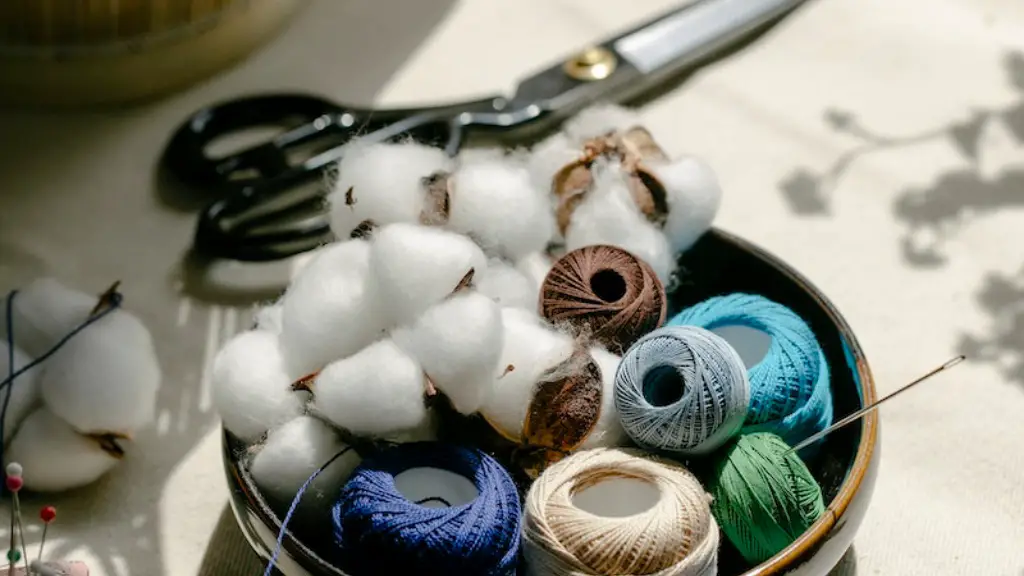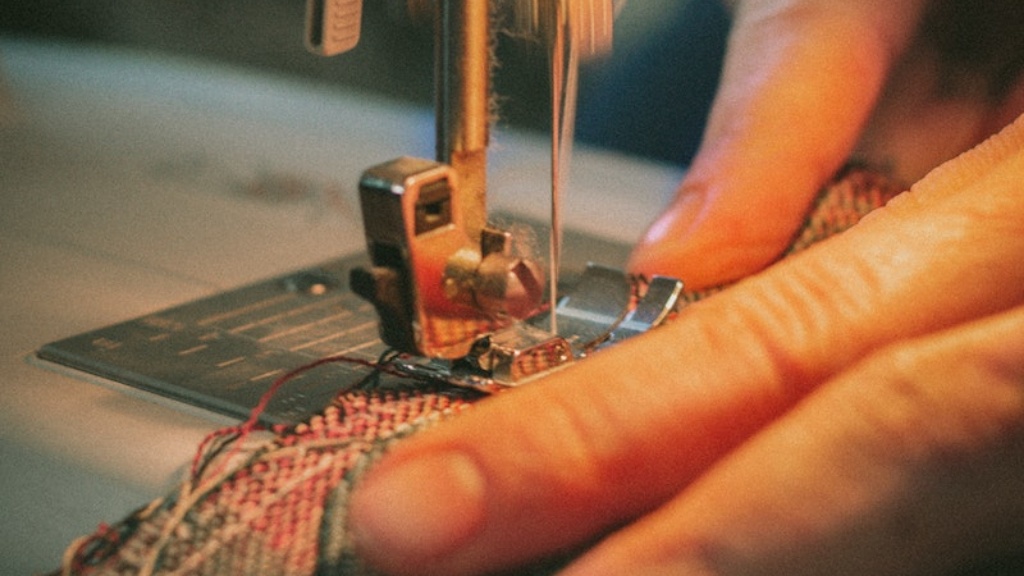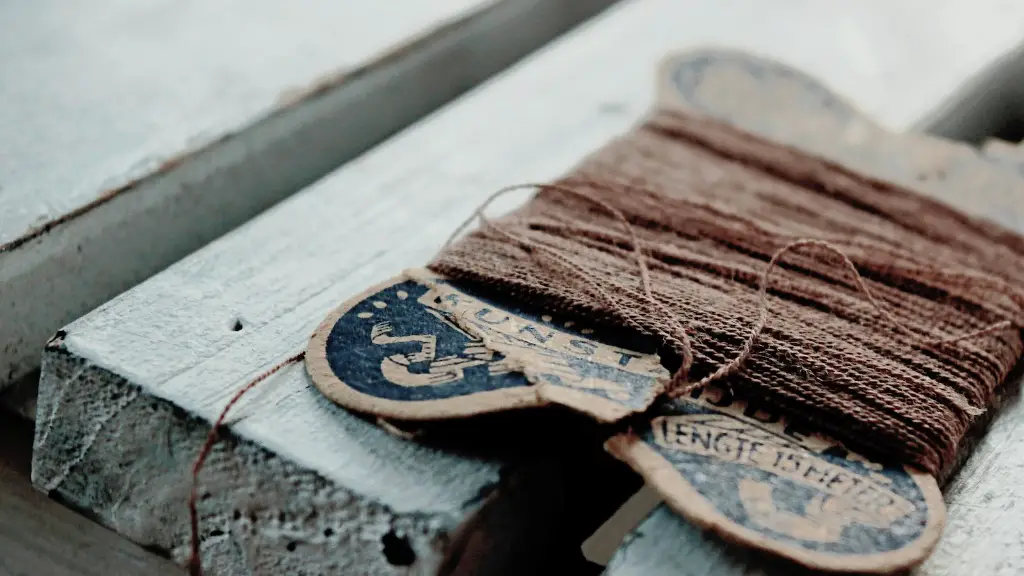The cost of sewing machines has been a subject of much debate over the years. A quick search online will show you a vast range of prices that can range from as little as $35 up to several thousand dollars. But, before you decide on the perfect machine for you, it is important to understand the different types of machines and the costs that go into them.
From cheap hand-powered machines to advanced computerized models, there is a sewing machine out there to suit everyone’s needs and budget. The actual cost of a sewing machine can vary significantly due to factors such as features, brand and even the machine’s age. However, an average starting price for a basic machine would be around $80.
The most expensive machines are those which come with a range of bells and whistles such as automatic threading, built-in lights, programmable stitch patterns and LCD screens. Machines of this caliber can easily cost between $1000 to $2000 depending on the brand and its features. If you are looking for an industrial-grade machine with an automatic thread cutter and needle threader, be prepared to spend at least $3000.
Experts agree that one of the most important factors to consider when buying a sewing machine is your comfort and convenience. If you are an experienced sewer, you may need to invest in a more expensive and advanced machine which can perform intricate functions more efficiently. However, if you are a beginner or a casual sewer, you may not need to spend the extra money on these features.
Also, be sure to consider modern features such as smartphone hooks and Bluetooth. Technology has revolutionized the way we sew and many modern machines come with built-in Wi-Fi or a connection for your smartphone or tablet. While these features are certainly convenient, they also come with a hefty price tag.
Other than the machine itself, there are additional costs to consider such as the cost of the fabric, thread, bobbins, needles, stabilizers and other sewing supplies. And you will also need to factor in the cost of a protective carrying case or a comfortable cushion if it is not included with the machine. The cost of these items can quickly add up so be sure to factor them in when estimating the total cost of your sewing machine.
Overall, the actual cost of a sewing machine can vary greatly. While it is a good idea to invest in a good machine, it is important to remember that the most expensive machine is not necessarily the best machine for you. If you are willing to put in some research and take the time to find the perfect machine to fit your sewing needs, you can find a cheaper alternative that still provides all the features and functions you need.
How do different features and brands affect the cost?
Once you have narrowed down your list of machines, you’ll need to look at the different features each offers and the different brands available. It is important to note that, regardless of the price tag, no two machines are the same. A $100 machine with basic stitch options may provide enough for your needs, whereas a $1000 machine may include a range of decorative stitches and programmable settings – perfect for those who want to explore different stitch types.
Regarding brands, certain brands have established themselves as the go-to for sewing machines, like the Singer and Brother brand. When it comes to these two labels, you can expect a quality product. It is up to you to decide how much you are willing to spend, though prices can range from under $200 to $2000 and more.
If you are looking for a cheaper alternative, generic machines are a great choice. They typically cost under $200 and work perfectly in a pinch. However, they usually lack features and may not be as well built as more expensive machines.
There is no right or wrong answer when it comes to choosing the right machine for you. As long as you keep in mind your budget, the type of sewing you plan to do, and what type of features will be useful for you, you should feel confident in picking a machine that fits your needs.
Where to look for a sewing machine?
Once you have figured out the type of sewing machine you need and your budget, the next step is to determine where to look for the machine. Options include brick-and-mortar stores and online retailers. If you choose to shop online, then do your own research and compare prices from different sites.
If you don’t mind spending extra and having someone help you choose exactly what you need, then it is worth visiting a sewing store. The staff members there will be happy to answer your questions and provide you with expert advice. Additionally, you can try out a number of machines to find the one that you feel comfortable with.
Another option is to join a local sewing group or club, as they may have machines that can be rented or even bought at a steep discount. Also, some organizations accept donations of used sewing machines and they usually offer generous discounts. If you’re really lucky, you might even find an older models that still look and work like new.
What to look for in a sewing machine?
Once you have narrowed down the type of machine, price and where to look for it, there are still a few things to consider when making the final decision. First, consider what type of task you will be primarily performing with your machine. Will you be making garments, quilts or doll clothes? If so, you’ll need a machine with adjustable depth and a wide variety of stitches, thus a more expensive machine will be necessary.
Another key feature to consider is the construction and the quality of the machine. Make sure to check for machine components such as the motor, gearbox, and the gearing system. You should also check if the machine is lightweight or heavy, and if it has a built-in carrying handle. This is important for portability if you’re ever in need of taking your machine to a class or retreat.
When looking for a sewing machine, always consider the manufacturer’s warranty before making a purchase. A good warranty will guarantee the performance and durability of the machine. This will also ensure that you can receive service and repairs in the event of any future problems.
What other cost and considerations must be made?
Before you commit to purchasing a sewing machine, it’s also important to consider the cost of maintenance. Just like regular upkeep of your automobile engine, regular maintenance of your sewing machine will ensure its longevity. Most machines need to be serviced and oiled every now and then. If you prefer to take it to an expert, this can cost an additional $50-$100.
Also, keep in mind the cost of accessories. You will need additional items such as bobbins, presser feet, needles, and scissors, which can add up over time. Furthermore, if you plan to sew several projects in a row, invest in a good iron and ironing board plus a cutting table, too. It is worth investing in quality accessories as it will make your sewing much easier.
Last but not least, if you’re starting to learn sewing, you should enroll in a class or attend a sewing retreat or camp. This will help you gain the skill and knowledge needed to get the most out of your machine.
Before you buy a sewing machine:
- Be sure to do your research and try different machines before making a decision.
- Think of what type of projects you’d like to sew in the future, as well as how you’d like to use the machine every day.
- Compare prices to get the best deal and keep track of additional accessories you may need.
- Purchase a machine with a warranty in order to have security and peace of mind.
Finally, if you’re unsure of what you should choose, talk to the store clerk or an experienced sewist, such as family members or friends, to help you make the right choice.
